
Matei Alexe Călinescu (June 15, 1934 – June 24, 2009) was a Romanian literary critic and professor of comparative literature at Indiana University, in Bloomington, Indiana.

Matei Alexe Călinescu (June 15, 1934 – June 24, 2009) was a Romanian literary critic and professor of comparative literature at Indiana University, in Bloomington, Indiana.
Călinescu was born in Bucharest, Romania, the son of Radu Călinescu, an engineer, and Dora Călinescu (née Vulcănescu), a homemaker. [1] He attended the Ion Luca Caragiale High School in Bucharest, [2] obtaining his diploma in 1952. He then pursued his studies at the University of Bucharest, graduating in 1957. [3] Călinescu became an assistant professor in the Department of Universal and Comparative Literature at the University of Bucharest, and made his literary debut in Gazeta literară . He was offered a Fulbright grant and defected to the United States in 1973. [4]
From 1973 to 1975 Călinescu was a visiting professor at Indiana University Bloomington, before becoming an associate professor there in 1976, and a full professor in 1978. [1] He was awarded a Guggenheim Fellowship in 1975. He became a naturalized American citizen in 1980. [1] Upon his retirement he became an Emeritus Professor at Indiana University. He lived with his wife in Bloomington, Indiana, and died there in 2009.

Mihai Eminescu was a Romanian Romantic poet from Moldavia, novelist, and journalist, generally regarded as the most famous and influential Romanian poet. Eminescu was an active member of the Junimea literary society and worked as an editor for the newspaper Timpul, the official newspaper of the Conservative Party (1880–1918). His poetry was first published when he was 16 and he went to Vienna, Austria to study when he was 19. The poet's manuscripts, containing 46 volumes and approximately 14,000 pages, were offered by Titu Maiorescu as a gift to the Romanian Academy during the meeting that was held on 25 January 1902. Notable works include Luceafărul, Odă în metru antic, and the five Letters (Epistles/Satires). In his poems, he frequently used metaphysical, mythological and historical subjects.
Romanian literature is the entirety of literature written by Romanian authors, although the term may also be used to refer to all literature written in the Romanian language or by any authors native to Romania.

Mateiu Ion Caragiale, also credited as Matei or Matheiu, or in the antiquated version Mateiŭ, was a Romanian poet and prose writer, best known for his novel Craii de Curtea-Veche, which portrays the milieu of boyar descendants before and after World War I. Caragiale's style, associated with Symbolism, the Decadent movement of the fin de siècle, and early modernism, was an original element in the Romanian literature of the interwar period. In other late contributions, Caragiale pioneered detective fiction locally, but there is disagreement over whether his work in the field produced a complete narrative or just fragments. The scarcity of writings he left is contrasted by their critical acclaim and a large, mostly posthumous, following, commonly known as mateists.
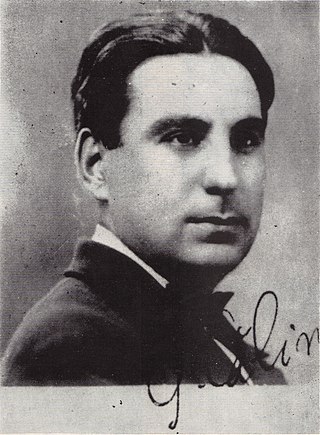
George Călinescu was a Romanian literary critic, historian, novelist, academician and journalist, and a writer of classicist and humanist tendencies. He is currently considered one of the most important Romanian literary critics of all time, alongside Titu Maiorescu and Eugen Lovinescu, and is one of the outstanding figures of Romanian literature in the 20th century.

Ion Minulescu was a Romanian avant-garde poet, novelist, short story writer, journalist, literary critic, and playwright. Often publishing his works under the pseudonyms I. M. Nirvan and Koh-i-Noor, he journeyed to Paris, where he was heavily influenced by the growing Symbolist movement and Parisian Bohemianism. A herald of Romania's own Symbolist movement, he had a major influence on local modernist literature, and was among the first local poets to use free verse.

Ion Negoiţescu was a Romanian literary historian, critic, poet, novelist and memoirist, one of the leading members of the Sibiu Literary Circle. A rebellious and eccentric figure, Negoiţescu began his career while still an adolescent, and made himself known as a literary ideologue of the 1940s generation. Moving from a youthful affiliation to the fascist Iron Guard, which he later came to regret, the author became a disciple of modernist doyen Eugen Lovinescu, and, by 1943, rallied the entire Sibiu Circle to the cause of anti-fascism. He was also one of the few openly homosexual intellectuals in Romania to have come out before the 1990s—an experience which, like his political commitments, is recorded in his controversial autobiographical writings.
Alexandru Zub is a Romanian historian, biographer, essayist, political activist and academic. A former professor at the University of Iași, noted for his contribution to the study of cultural history and Romanian history, he is currently head of the A.D. Xenopol Institute of History. He was elected a full member of the Romanian Academy in 2004 ; currently, he serves as head of the Academy's History Department.

Pantazi Ghica was a Wallachian, later Romanian politician and lawyer, also known as a dramatist, poet, short story writer, and literary critic. A prominent representative of the liberal current, he was the younger brother and lifelong collaborator of Ion Ghica, who served as Prime Minister of the Romanian Kingdom in 1866-1867 and again in 1870-1871. Pantazi Ghica began his political career as a participant in the Wallachian Revolution of 1848, a collaborator of the Romantic historian and activist Nicolae Bălcescu, and a member of the radical grouping headed by C. A. Rosetti. Although twice involved in the administration of Buzău County, Ghica lived much of his life in exile or in Bucharest, and was also a soldier for the Ottoman Empire during the Crimean War. After 1875, he was a prominent member of the National Liberal Party.

[[File:|thumb|Portrait of Petrașcu by George Demetrescu Mirea]] Nicolae Petrovici, known as Nicolae Petrașcu and commonly rendered as N. Petrașcu or Pĕtrașcu, was a Romanian journalist, essayist, literary critic, novelist, and memoirist. The author of monographs on major figures in Romanian literature, Petrașcu was originally affiliated with the conservative literary society Junimea, but did not embrace all its tenets. Like his friend, novelist Duiliu Zamfirescu, he parted with the group and, together with Dimitrie C. Ollănescu-Ascanio, established a new circle around the magazine Literatură și Artă Română.
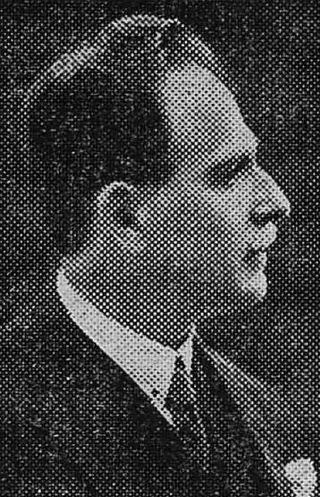
Alexandru Toma was a Romanian poet, journalist and translator, known for his communist views and his role in introducing Socialist Realism to Romanian literature. Having debuted as a Symbolist, Toma was influenced by 19th-century writer Mihai Eminescu, an admiration which came to characterize his entire work. The official poet during the early years of the Communist regime and appointed a full member of the Romanian Academy, he is considered by many commentators to have actually been a second-shelf writer, with a problematic legacy.

Laura Pavel is a Romanian essayist and literary critic.
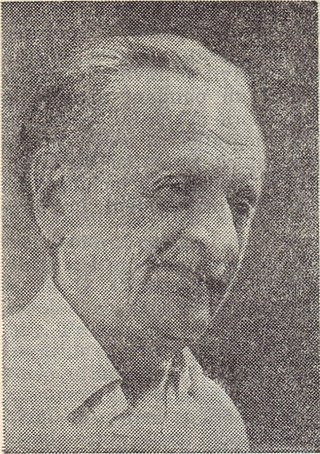
Șerban Cioculescu was a Romanian literary critic, literary historian and columnist, who held teaching positions in Romanian literature at the University of Iași and the University of Bucharest, as well as membership of the Romanian Academy and chairmanship of its Library. Often described as one of the most representative Romanian critics of the interwar period, he took part in the cultural debates of the age, and, as a left-wing sympathizer who supported secularism, was involved in extended polemics with the traditionalist, far right and nationalist press venues. From early on in his career, Cioculescu was also noted for his selective approach to literary modernism and the avant-garde, preferring to place his cultural references with Neoclassicism.
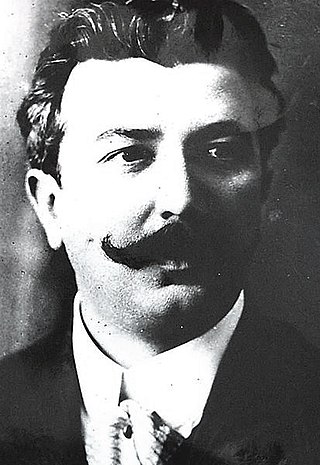
George or Gheorghe Ranetti, born George Ranete, was a Romanian poet, journalist and playwright, known as the founder and editor of Furnica magazine. A professional journalist from the late 1890s, he alternated between political dailies and literary reviews, being sympathetic to Romanian nationalism and traditionalism, and working under Ion Luca Caragiale at Moftul Român. By 1904–1906, he was active on the margin of left-wing traditionalism, or Poporanism, showing himself sympathetic to republican or generically anti-elitist ideologies. Such views and influences seeped into his activity at Furnica, which was for decades a prominent institution in Romanian humor.
I. M. Rașcu was a Romanian poet of Symbolist verse, cultural promoter, comparatist, and schoolteacher. He is remembered for his participation in the Romanian Symbolist movement: a founder and co-editor, with Alfred Hefter-Hidalgo, of Versuri și Proză magazine, he became one of the leading Symbolist figures in his native city of Iași before 1914. In later years, he lived more discreetly as a scholar and educationist, earning both praise and opprobrium for his sternness and erudition.

Paul Zarifopol was a Romanian literary and social critic, essayist, and literary historian. The scion of an aristocratic family, formally trained in both philology and the sociology of literature, he emerged in the 1910s as a rebel, highly distinctive, voice among the Romanian press and book reviewers. He was a confidant and publisher of the Romanian writer Ion Luca Caragiale, building his theories on Caragiale's already trenchant appraisals of Romanian society and culture. Zarifopol defended art for art's sake even against the Marxism of his father-in-law, Constantin Dobrogeanu-Gherea, and the Poporanism of his friend, Garabet Ibrăileanu. He was also a noted censurer of neoclassical trends, of philistinism, and of inauthentic customs, advocating renewal, but not revolution. A skeptic reviewer of modernist literature, he reemerged during the interwar period as its dedicated promoter, but his preference for literary entertainment over substance and many of his literary bets were shortly dismissed by other experts of the day.
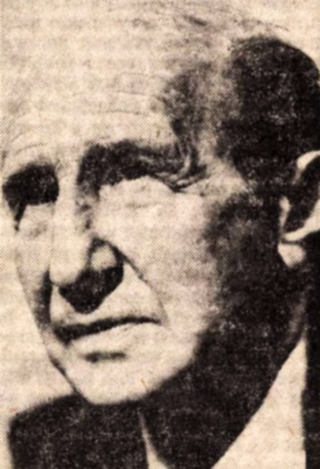
Dumitru Ion Suchianu, most often shortened to D. I. Suchianu or D.I.S., was a Romanian essayist, translator, economist and film theorist, also noted for his participation in politics. The son of a distinguished Armenian teacher-editor and his Romanian socialist wife, he was acquainted with, and inspired by, writer Ion Luca Caragiale, who visited his childhood home. Attending Iași's Boarding High School in the 1910s, he formed a lasting bond with Mihai Ralea. The two young men went on to study together at the University of Paris, where they earned their credentials as social scientists and political thinkers; Ralea also married Suchianu's sister Ioana. Their careers were tied to Viața Romînească magazine, put out by their mentor Garabet Ibrăileanu. It was here and in Adevărul newspaper that Suchianu made his reputation as a polemicist and essayist. His early writings tackled a variety of subjects, from political biographies and world affairs to legal history, a subject which also preoccupied him during his successive mandates at the Legislative Council. After 1927, he became directly involved in the ideological and aesthetic steering of Romanian cinema, as a columnist, film historian, censor, and eventually producer.

Paul Bujor was a Romanian zoologist, physiologist and marine biologist, also noted as a socialist writer and politician. Hailing from rural Covurlui County, he studied biology in France and Switzerland, where he was attracted by left-wing ideas; his evolutionary biology, informed by the work of Carl Vogt, veered into Marxism and irreligion. Returning to the Kingdom of Romania, he was a junior member of the Romanian Social Democratic Workers' Party, active on its moderate wing. He earned the critics' attention in the 1890s as a short story writer with a socialist and pacifist message, but only returned to fiction writing briefly, in the 1930s. An award-winning ichthyologist, Bujor was hired by the University of Iași, where he taught for 41 years, and throughout the period worked on documenting the Black Sea fauna, and made discoveries concerning the environment of Techirghiol Lake. He inaugurated the Romanian study of animal morphology, while also contributing to histology, embryology, and parasitology, and gave popular lectures on evolution and physical culture.
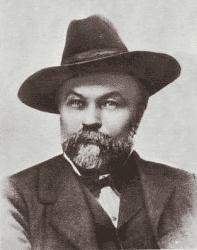
Calistrat Hogaș was a Moldavian, later Romanian prose writer. The son of a Tecuci priest, he studied at the University of Iași before beginning an over four-decade career as a high school teacher, often at Piatra Neamț. Meanwhile, he made several false starts as a writer before finding a suitable genre, namely stories drawn from his mountain rambles that appeared starting in 1907. He did not manage to collect his works during his lifetime, but these appeared to great success in 1921.

George Panu was a Moldavian, later Romanian memoirist, literary critic, journalist and politician. A native of Iași, educated there as well as in Paris and Brussels, he worked as a schoolteacher and lawyer, but made a name for himself in politics and journalism. His outlook was a radical one that shared common goals with the socialist movement. Noted for his bitter polemics, he served several terms in parliament, alternating between the main parties as well as heading his own small faction for nearly a decade. In the last years of his life, Panu wrote a valuable memoir detailing his experiences in the Junimea literary society, of which he had become an implacable adversary.

Radu D. Rosetti or Rossetti was a Romanian poet, playwright, and short story writer, also distinguished as an attorney and activist. The son of playwright-aristocrat Dimitrie Rosetti-Max and nephew of Titu Maiorescu, he had a troubled and rebellious youth, split between Romania and Austria-Hungary; during these debut years, he kept company with senior literary figures such as Ion Luca Caragiale and Alexandru Vlahuță. Graduating from the University of Bucharest at age 26, he was already a successful poet of neoromantic sensibilities, a published translator of plays and novels, and also famous for his unhappy marriage to the literary critic Elena Bacaloglu. Rosetti then switched to writing social-themed plays and stories of his professional life, earning a high profile as a defender of left-wing causes and impoverished clients. He traveled extensively and to exotic locations, publishing a number of volumes detailing his experiences.